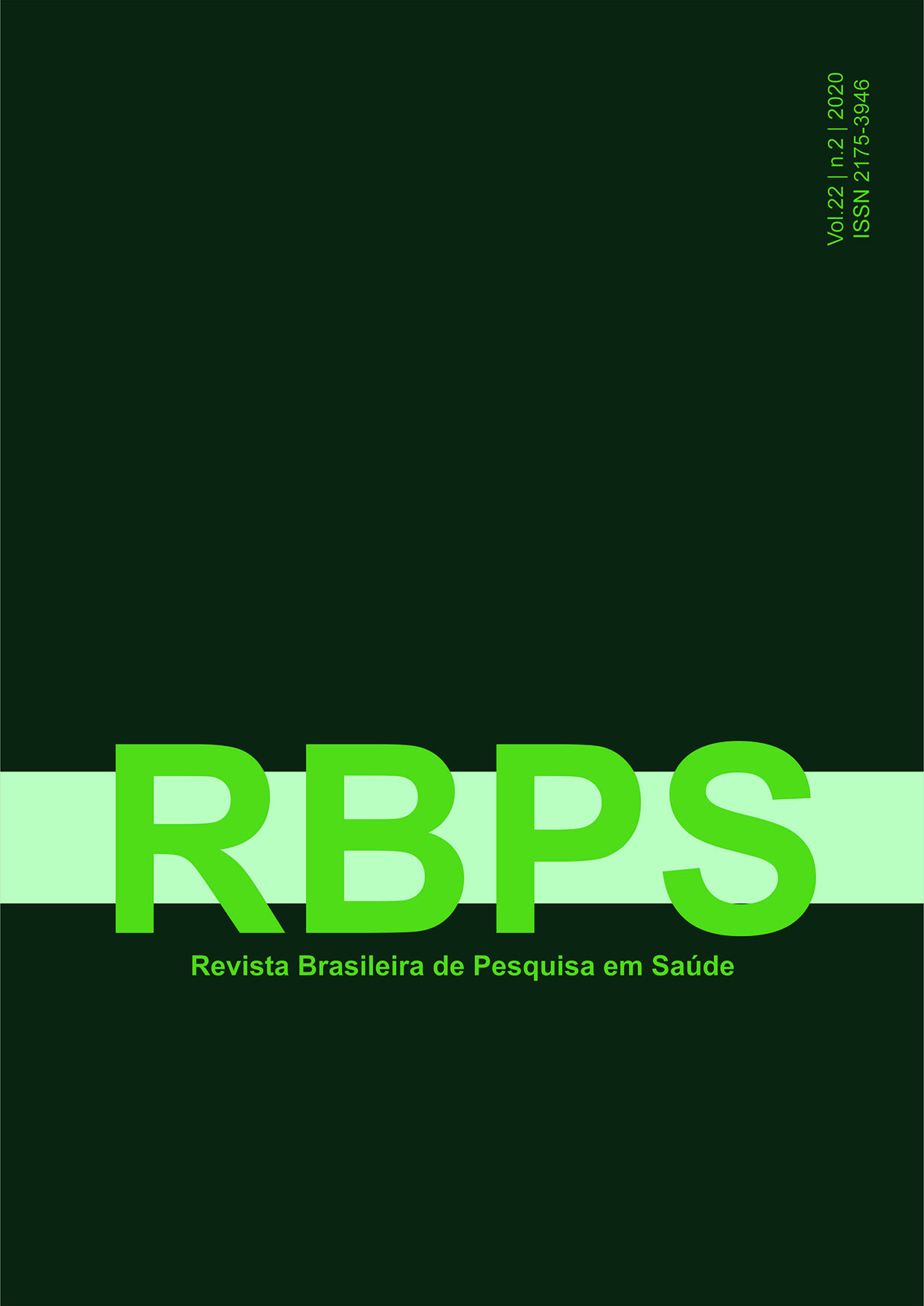Paulo Freire´s research itinerary in studies developed in postgraduate Health programs
DOI:
https://doi.org/10.47456/rbps.v22i2.24517Keywords:
Methods, Nursing, Research, Community-Based Participatory Research, Qualitative ResearchAbstract
Introduction: The health field has been using the teaching approach by Paulo Freire, which, based on participatory methodology, enables group experience, with emphasis on dialogue, and contributes to emancipatory health education. Objective: Identifying the production profile of research carried out in dissertations and theses that used carried out based on Paulo Freire’s Research Itinerary in postgraduate health programs in Southern Brazil. Method: Qualitative bibliographic research. Inclusion criteria comprised, dissertations and theses produced in the health field, based on stages such as Thematic Investigation, Coding, and Decoding, and Critical Unveiling of Research Itinerary, published from 2008 to 2017, in full version and available online at website of Federal Universities in Southern Brazil. Data collected from the studies were organized in a structured instrument and subjected to content analysis. Results: It was clear that academic studies were carried out based on this method. However, of the 57 identified studies, only ten used Paulo Freire’s Research Itinerary and took into consideration all three stages of the method. Conclusion: It is noteworthy that the Research Itinerary stages remain poorly known by researchers, who cannot fully use the method to carry out scientific investigations.
Downloads
References
2. Freire P. Pedagogia da autonomia: saberes necessários à prática educativa. 57ª ed. Rio de Janeiro: Paz e terra, 2016.
3. Monteiro EMLM, Vieira, NFC. Educação em saúde a partir de círculos de cultura.Rev. bras. enferm., 2010. 63(3):397-403.
4. Freire P. Pedagogia do Oprimido. 65ª ed. Rio de Janeiro: Paz e Terra, 2018.
5. Heidemann ITSB, Almeida MCP. Freire’s dialogic concept enables family health program teams to incorporate health promotion. Public Health Nurs. 2010; 28(2):159-67.
6. Freire P. Educação e Mudança. 36º ed. Rio de Janeiro: Paz e Terra, 2014.
7. Freire P. Pedagogia da Autonomia. Saberes necessários à prática educativa. 57 ed. São Paulo: Paz e Terra, 2016.
8. Heidemann ITSB, Boehs AE, Wosny AM, Stulp KP. Incorporação teórico-conceitual e metodológica do educador Paulo Freire na pesquisa. RevBras Enferm 2010; 63(3):416-420.
9. Prodanov CC. Metodologia do trabalho científico [recurso eletrônico]: Métodos e técnicas da pesquisa e do trabalho acadêmico. 2ª edição. Novo Hamburgo: Feevale, 2013.
10. Mendes KDS, Silveira RCCP, Galvão CM. Revisão integrativa: método de pesquisa para incorporação de evidências na saúde e na enfermagem. Texto Contexto Enferm. 2008; 17(4):758-64.
11. Bauer MW. Analise de conteúdo clássica: uma revisão. In Bauer MW, Gaskell G (org). Pesquisa qualitativa com texto: imagem e som: um manual prático. 11th ed. Trad Pedrinho AG. Petrópolis: RJ: Vozes; 2013.
12. Heidemann ITSB, Wosny AM, Boehs AE. Promoção da Saúde na Atenção Básica: estudo baseado no método de Paulo Freire. Ciênc. Saúde Colet. 2014; 19(8):3553-9.
13. Michelin SR, Marchi JG, Hyeda IS, Heidemann ITSB, Nitschke RG. Percepção das mulheres sobre promoção da saúde durante a consulta de enfermagem. Cienc Cuid Saude 2015; 14(1):901-9.
14. Cunha RR, Backes VMS, Heidemann ITSB. Desvelamento crítico da pessoa estomizada: em ação o programa de educação permanente em saúde. Acta paul. enferm. 2012; 25( 2 ): 296-301.
15. Wallerstein N, Duran B. Community-based participatory research contributions
to intervention research: the intersection of science and Practice to Improve Health equity.American JournalofPublic Health. 2010; 100 Suppl 1:S40-6.
16. Saul AM. Referenciais freireanos para a prática da avaliação. Revista de Educação PUC-Campinas. 2012; 25:17-24.
17. Siqueira, MCG, Leopardi MT. O processo ensino-aprendizagem na formação de trabalhadores do SUS: reflexões a partir da experiência da ETSUS.Trab. Educ. Saúde. 2016; 14(1):119-36.
18. Chiarella T, Bivanco-Lima D, Moura JC, Marques MCC, Marsiglia RMG. A Pedagogia de Paulo Freire e o Processo Ensino-Aprendizagem na Educação Médica.Rev. bras. educ. med. 2015; 39(3):418-25.
19. Nogueira IS, Vergaças HM, Santos LF, Cypriano PE, Moreno MG, Lima SO,Baldissera, VDA. A prática educativa na estratégia saúde da família: estratégia para repensar e reconstruir ações dialógicas. Arq. Ciências Saúde UNIPAR. 2015;19(1):11-17.
20. Backes VMS, Boehs AE, Heidemann ISB, Kleba ME, Wosny AM. Pensamento de Paulo Freire e sua aplicação na pesquisa em Enfermagem e Saúde. In: Anais do III Congreso Iberoamericano de Investigación Cualitativa
Downloads
Published
How to Cite
Issue
Section
License
Copyright (c) 2020 Revista Brasileira de Pesquisa em Saúde/Brazilian Journal of Health Research

This work is licensed under a Creative Commons Attribution-NonCommercial-NoDerivatives 4.0 International License.
Authors and reviewers must disclose any financial, professional, or personal conflicts of interest that could influence the results or interpretations of the work. This information will be treated confidentially and disclosed only as necessary to ensure transparency and impartiality in the publication process.
Copyright
RBPS adheres to the CC-BY-NC 4.0 license, meaning authors retain copyright of their work submitted to the journal.
- Originality Declaration: Authors must declare that their submission is original, has not been previously published, and is not under review elsewhere.
- Publication Rights: Upon submission, authors grant RBPS the exclusive right of first publication, subject to peer review.
- Additional Agreements: Authors may enter into non-exclusive agreements for the distribution of the RBPS-published version (e.g., in institutional repositories or as book chapters), provided the original authorship and publication by RBPS are acknowledged.
Authors are encouraged to share their work online (e.g., institutional repositories or personal websites) after initial publication in RBPS, with appropriate citation of authorship and original publication.
Under the CC-BY-NC 4.0 license, readers have the rights to:
- Share: Copy and redistribute the material in any medium or format.
- Adapt: Remix, transform, and build upon the material.
These rights cannot be revoked, provided the following terms are met:
- Attribution: Proper credit must be given, a link to the license provided, and any changes clearly indicated.
- Non-Commercial: The material cannot be used for commercial purposes.
- No Additional Restrictions: No legal or technological measures may be applied to restrict others from doing anything the license permits.

























